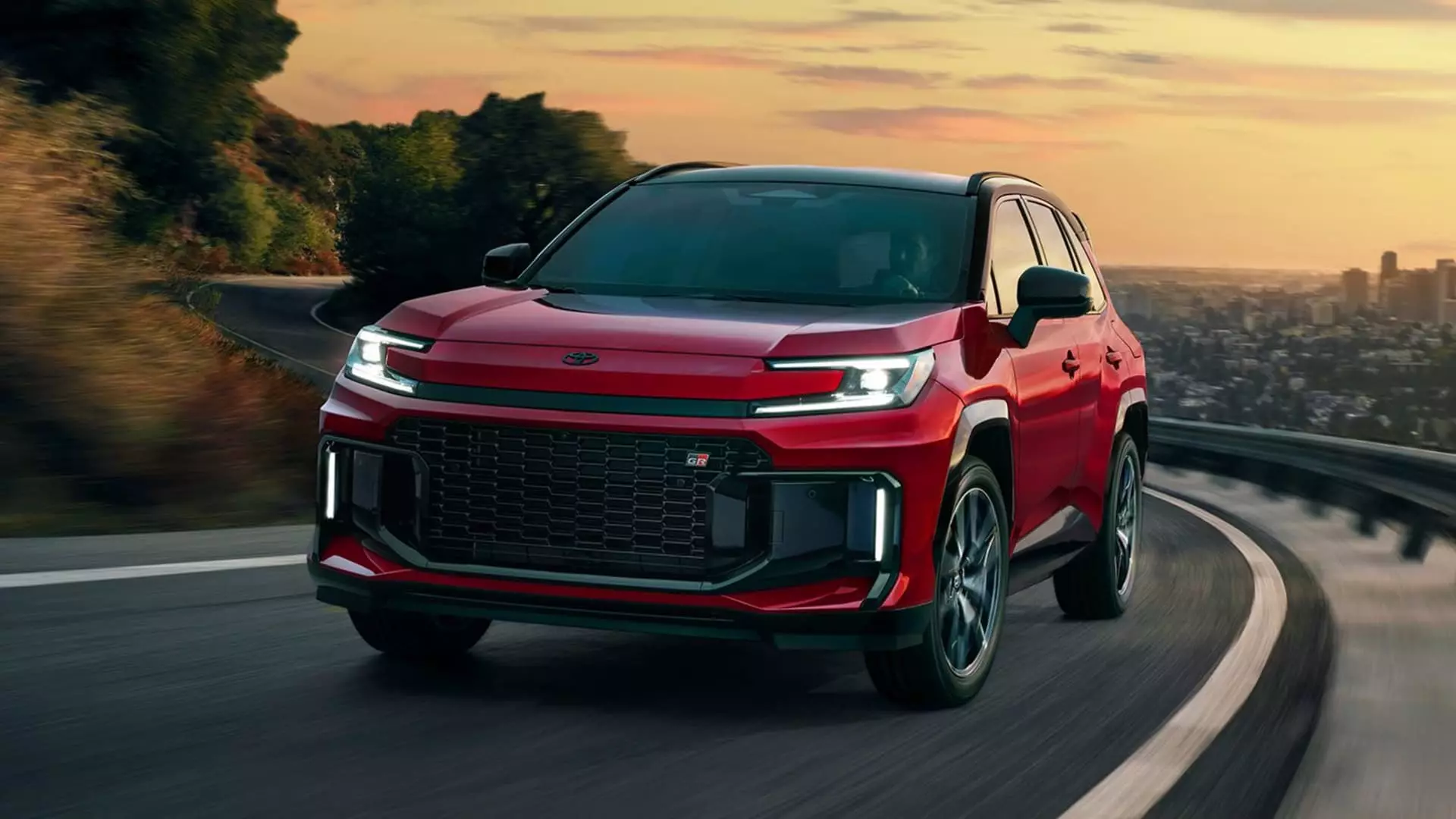In a striking announcement that has sent ripples across the automotive industry, Toyota Motor Corporation has decided to transform its top-selling RAV4 SUV into an exclusive hybrid model for 2026. This bold shift signifies a critical moment in the industry—a time where the crude reality of climate change and a growing environmental consciousness among consumers intertwines with business strategy. By phasing out traditional gas engines for the RAV4, Toyota is not simply following a trend; it’s laying down a challenge to competitors and redefining expectations in the SUV market.
This move is both audacious and commendable, reflecting a company that understands its role not just as a seller of vehicles but as a player in the larger narrative of sustainability. With hybrid sales soaring over recent years—44% of RAV4 sales accounted for hybrids in the last year alone—it seems that the market has already indicated a readiness for this transition. While many automakers are scrambling to catch up with the all-electric wave, Toyota’s long-standing commitment to hybrid technology shines as a beacon for both profit and principles.
Consumer Demand and Industry Implications
Toyota’s transition to an all-hybrid RAV4 lineup can also be viewed through a lens of consumer behavior. David Christ, the head of the Toyota brand in North America, articulated brilliantly that consumer preferences are steering manufacturers toward hybrids. The statistics don’t lie; hybrids not only meet regulatory standards but also align with growing consumer demands for efficiency and practicality. As we witness the current state of climate change discourse, consumers are becoming increasingly discerning about the environmental impact of their choices.
This is not merely a business strategy driven by compliance; it is a pivotal shift in corporate responsibility that echoes the sentiments of a more conscientious generation. Toyota’s decision serves to acknowledge this emerging demand while showcasing leadership in a market that has often been reactive rather than proactive. As traditional perceptions of the car-buying experience evolve, this decision will force competitors to take notice and either adapt or risk obsolescence.
Challenges Amid Growth
However, the path is not without challenges. The automotive landscape is fraught with uncertainties, particularly concerning shifting tariffs and production costs. While Toyota has a manufacturing plant in Kentucky, the company’s reliance on international production for many models—including the popular RAV4—could become a logistical headache, especially with President Trump’s ongoing tariffs impacting costs significantly.
Mark Templin, Toyota’s Chief Operating Officer, hinted at these concerns, acknowledging the importance of diversifying production to ensure a steady supply—an endeavor that could become increasingly difficult in an environment of fluctuating trade policies. The backdrop of these economic uncertainties adds a layer of difficulty to what is already a courageous initiative.
While many companies are responding with tepid measures to engage with electric and hybrid technologies, Toyota’s commitment to the RAV4 hybrid pushes the boundaries of what’s expected. The company’s readiness to invest in expanding production capacity at home suggests a long-term focus that few competitors have aligned with just yet.
A Market Leader’s Influence
Toyota’s hybrid strategy may well serve as a model for the industry, showcasing how a company can not only adapt to market demands but also influence them. As electric vehicle sales surge with a combined record of 20% of all new vehicle sales in the U.S., the challenge for automakers becomes clear: how do they engage with a rapidly changing consumer base while managing cost and production challenges?
With hybrid vehicles being a bridge rather than a destination, Toyota’s decision may nudge other automakers to reconsider their tactics. By embracing hybrid technology, Toyota positions itself not merely as a vehicle manufacturer but as an environmentally aware industry leader. It signals to consumers that it understands their concerns about climate change, and that it is committed to providing sustainable options without entirely forsaking traditional vehicle engineering.
Changing the Narrative
This strategic pivot is not just about engineering a new car—it is about creating a narrative that resonates with the public’s increasing desire for sustainable choices. Hybrid technology offers an attractive compromise for consumers who may be hesitant to fully embrace electric vehicles due to concerns about range, charging infrastructure, and cost.
By solidifying the RAV4’s place as an exclusively hybrid SUV, Toyota not only enhances its brand value but also crafts a compelling story of innovation and responsibility. In an age where consumers crave authenticity, this shift could very well position Toyota at the forefront of a revolution—not just in how vehicles are built but in how consumers think about their transport options. The RAV4 is more than just a vehicle now; it is a symbol of a commitment to a more sustainable future, and that’s a narrative that could resonate for years to come.

